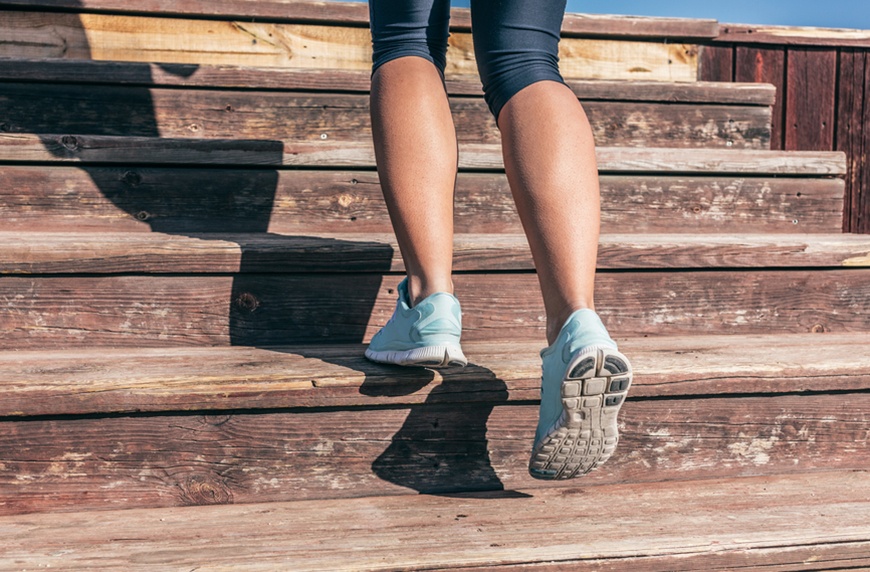4 Collagen Benefits That Have Nothing to Do With Your Skin
“Collagen contains 18 amino acids, [including] eight essential amino acids,” says professor and nutrition expert Nicole Avena, PhD. “These amino acids help our bodies perform important functions.” You gut, joints, hormones—all get an assist from your bone broth latte or your collagen-spiked smoothie.
Sounds too good to be true? Well, there’s one caveat—collagen won't do you any favors if you're not otherwise eating a healthy, balanced diet. “Collagen is not a cure-all,” stresses BZ Nutrition founder Brigitte Zeitlin, MPH, RD. “It [can help] maintain healthy, normal muscle, joint, and organ function within your body, but it will not undo damage on its own. You need to incorporate it into a healthy diet filled with lean protein—fish, seafood, eggs, or meat—fruits, vegetables, healthy fats, and whole grains.”
If you’ve already got that balance thing down, however, then taking a collagen supplement could be just the thing to take your health to the next level—inside and out. (Both Dr. Avena and Zeitlin like Further Food’s collagen powder, while Zeitlin’s also a fan of Vital Proteins.) Maybe it’s time to change that superlative to "Biggest Overachiever?"
Keep reading for 4 health-boosting benefits of collagen that you might not be aware of.

1. It helps keep your gut healthy
You can never make too many plays for a healthy digestive tract, since it affects everything from skin health to mood. And according to the experts, collagen delivers all sorts of benefits on this front.
“Collagen plays a role in building and maintaining healthy connective tissue, which lines our entire digestive tract,” says Zeitlin. “Damages to the tissue can lead to inflammation and leaky gut syndrome.”
If you suspect your gut lining may be compromised—perhaps after years of taking pain meds or overexercising—collagen could help you heal, says Dr. Avena. “Since collagen is a key component in the intestinal wall, supplementing may help to repair it,” she says. “Another amino acid in collagen, glutamine, can help in preventing inflammation of the gut wall and may help in healing leaky gut.”

{{post.sponsorText}}
Your stomach, too, may benefit. “Collagen contains abundant amounts of glycine and proline, which may help in healing the stomach lining and preventing stress-induced ulcers,” says Dr. Avena. The stress bit is key: If your nervous system is constantly taxed, it can actually disrupt the production of collagen, says Zeitlin. “If you are someone with a lot of stress, then you want to add in collagen-boosting foods and peptides,” she notes.

2. It may help relieve constipation
Digestion feeling a little sluggish? Collagen to the rescue. “Collagen may help for constipation because it is a hydrophilic molecule, which can help to attract water and acidic molecules,” says Dr. Avena. “This may help food move through the GI tract more smoothly.”
Of course, you still need to be hydrated in order for this to work, so make sure you're drinking enough water so that you're peeing every two to three hours.

3. It can keep cravings at bay
If you’re in the midst of a big dietary change—like quitting sugar or dairy, or kicking carbs in the name of going keto—you’ll likely spend a few days pining after whatever it is you’ve given up. Collagen can help, says Zeitlin. “A good source of protein at every meal and snack will help to fill you up and keep you satisfied, which helps to curb cravings and prevent overeating,” she points out.
Science backs up the power of collagen protein, specifically, in minimizing the munchies. “In a study assessing hunger hormones in 10 obese patients and 12 patients of normal weight, researchers found that the intake of gelatin—a substance derived from collagen itself—actually increased the satiety hormone,” Dr. Avena explains. “This goes hand-in-hand with fighting off pesky cravings, such as those for salty, oily, fatty, or sugary foods.” It’s certainly easier to swallow than apple cider vinegar—another under-the-radar cravings cure.

4. It may prevent workout-related soreness
As you get older, you may find the 5-mile runs and jump-squat sets that used to be NBD are suddenly getting a little harder to recover from. In that case, you may want to consider adding collagen powder to your post-workout shake.
“I typically bring up collagen when my patients are working out a lot or training for an event, [because] collagen builds muscle, fights joint inflammation, and repairs tissue,” says Zeitlin. Adds Dr. Avena: “Supplementing with collagen has been shown to reduce pain associated with exercise or physical activity, so you may be able to exercise longer.” Or, you know, make your rest days a lot more enjoyable.
Loading More Posts...